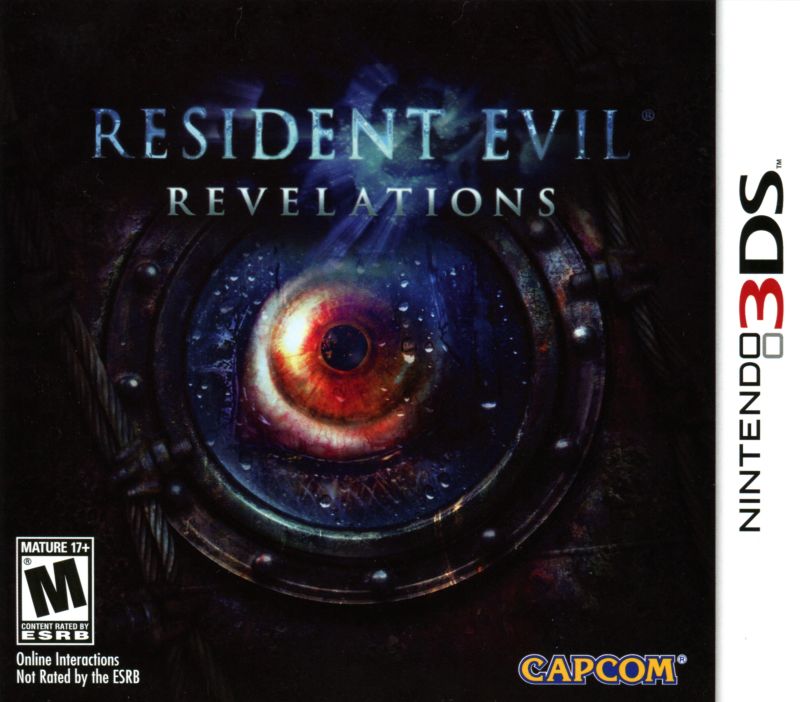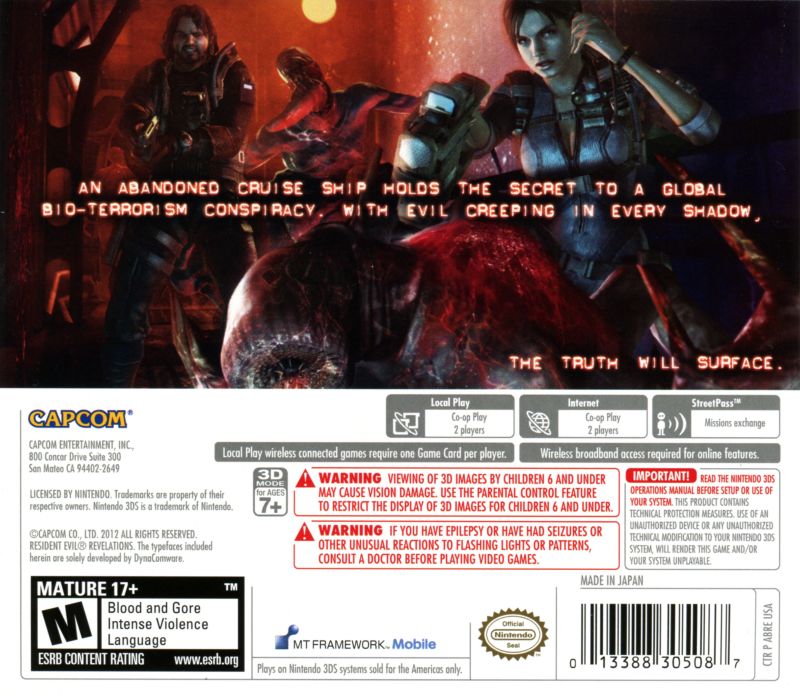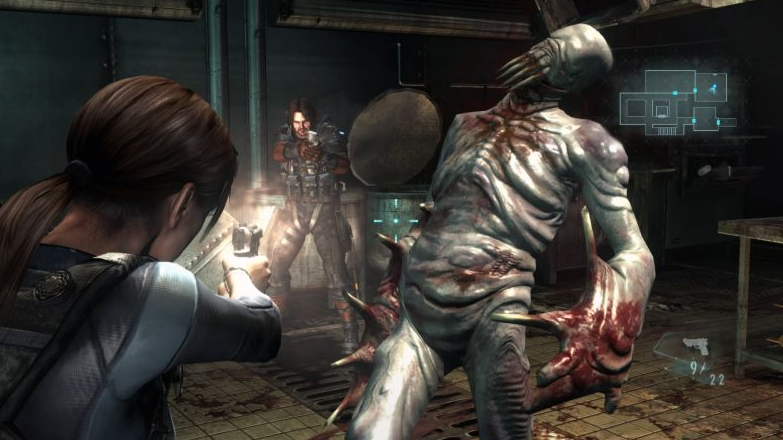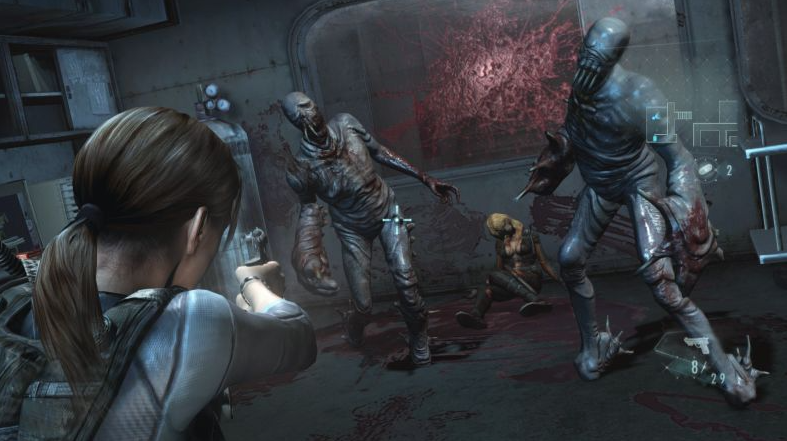Resident Evil: Revelations marks a return to the survival horror roots of the franchise from the action-centric gameplay of the previous title, Resident Evil 5.
The game takes place before part five in 2005, and after the total destruction of the ultra-modern sea-based city of Terragrigia by terrorists using old Umbrella-style B.O.W.s, or Bio-Organic Weapons. The primary focus of the story is on Jill Valentine and Chris Redfield as they hunt for answers on a mysterious luxury cruise ship known as the Queen Zenobia. The story is broken into chapters fitting for a portable title; story-wise, chapters alternate timelines. Jill Valentine works with her new partner Parker Luciani for the BSAA (Bioterrorism Security Assessment Alliance). Alternate story segments may focus on Chris Redfield and his new partner Jessica Sherawat, or new BSAA members Keith and Quint. Each chapter is intended to gradually wrap together the full narrative.
Exploration in the game is done in third-person 3D, like in Resident Evil 4 and Resident Evil 5, but with the action-heavy gameplay of those titles replaced by more traditional survival horror of the earlier games in the series. Players are once again exploring an ornate and luxurious environment similar to the mansion of the original game, carefully monitoring ammunition, approaching puzzles, and choosing when to fight and when to flee from an attack. The new mutations also appear in smaller numbers, and in claustrophobic areas.
While exploration of the Queen Zenobia is deeply rooted in the survival horror style, many alternating chapters are much more action-oriented and generally resemble the “shooting gallery” segments of Resident Evil 5. These segments may also include much more classic B.O.W. monsters, such as the infamous Hunters and variations of zombie dogs. Ammunition is much more plentiful, and exploration is downplayed.
New to the series is the Genesis device which allows players to scan their environments for hidden items, such as ammunition or hand-prints, or to scan enemies for “data.” Each enemy scanned increases a few percentage points, and scanning to 100% grants the player a new herb. The inventory slot system of previous games is largely removed, and players are given general limitations instead–up to three weapons and five herbs may be carried at once, and weapon lockers allow players to store extra weapons and upgrades. Keys and special items no longer take up any kind of inventory space, and therefore do not need to be monitored.
A weapon upgrade system similar to that found in Mercenaries 3D is also present in the game. Any weapon upgrade may be applied to any weapon, or replaced with any other upgrade. Each weapon has a limit to the total number of upgrades, usually three or four. Upgrades run the gamut of increased firepower, increased fire rate, larger clip size, and special features such as allowing a weapon to fire two bullets with a single trigger pull.
Raid Mode is action-focused, having players face off against and kill waves of enemies. Essentially, it takes the place of the Mercenaries mode found in Resident Evil 4 and , and in the previously released 3DS Mercenaries 3D game. The biggest difference between the new Raid mode and the old Mercenaries mode is the removal of the intense emphasis on strict time limits. Players complete a stage by killing all the monsters and melee-striking an emblem at the end. This mode may be played solo, or cooperatively either in local wireless play or online. Players earn BP which works like experience or money to buy a variety of upgrades for use in Raid mode. BP earned is based on results in both the Raid mode and regular story mode, and when enough of it is earned, it also allows the player to level-up. This mode also utilizes Nintendo 3DS Play Coins for use purchasing some items.
The game is primarily played on the 3D screen of the Nintendo 3DS, and even includes an option to effectively double the depth of the 3D on the system. The touch-screen is used for inventory, item details, and the game’s map. Primary and secondary weapons may be selected on the touch-screen, as well as the Genesis device. Weapon upgrades may also be applied or removed on the touch-screen. Some mini-games are also present in the game, such as unscrewing panels from electrical boxes and re-routing the current inside.
A special Mission mode exists that operates like an Achievement system in an Xbox 360 game. Completing the various missions unlocks the multi-player Raid mode and special items and circumstance for Raid mode. The Missions also utilize the Nintendo 3DS’s Street Pass functionality, which may unlock other missions should the player’s 3DS encounter another with different active Missions. Missions range from earning Achievements through in-game accomplishments to defeating certain enemies. Street Pass missions include defeating powerful foes in the Campaign, obtaining special Raid Mode-only items, and others.
Cover Art:
Screenshots:





